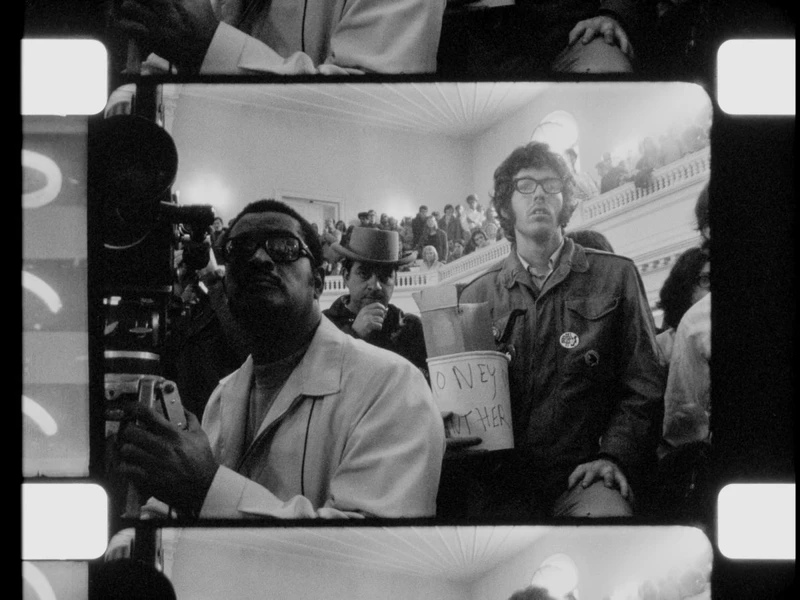Naeem Mohaiemen: THROUGH A MIRROR, DARKLY
21 Sep-9 Nov 2025


“In Corinthians 13:12, ‘through a glass, darkly’ meant the impossibility of viewing the full scope of divine plans. In a more earthly, secular context, I consider the memorialization of the Vietnam War era, and how the farther away we get in years, the hazier the many meanings of events in the mirror of memory become.”
– Naeem Mohaiemen
Naeem Mohaiemen’s new three-channel film, THROUGH A MIRROR, DARKLY examines the turbulent 1970s, a decade of hopeful rebellions and catastrophic disappointments, via flashpoint moments when American students protesting domestic racism and overseas wars were met by state violence in May 1970.
As the Vietnam War came to its bloody end, for the American media, the memory of four American students shot dead at Kent State University was sometimes as emotionally charged as the millions of deaths in Vietnam.
In the decades that followed, a memorial community has formed around the “four dead in Ohio.” Yet while the deaths of students Allison Krause, Jeffrey Miller, Sandra Scheuer, and William Schroeder at Kent State, Ohio, are remembered, not many recall Phillip Lafayette Gibbs and James Earl Green, two students killed ten days later by police officers at Jackson State College, Mississippi, a Historically Black College.
By choreographing the relationship between archival footage and contemporary ceremonies memorialising the dead, THROUGH A MIRROR, DARKLY, explores the role of memorials as a focal point for individual and collective grief. By comparing Kent and Jackson State, the project underscores blind spots around racialised violence and class tensions, made concrete in the disparity in coverage of these two campus shootings. The inclusion of stage-managed press conferences reveals the political machinations of the Nixon administration who fuelled a backlash to antiwar protests.
Mohaiemen deftly presents these intersecting strands, weaving together the voices of key political players, student leaders, and the fabled “man on the street” alongside Vietnam veterans, to propose new interpretations of the events of May 1970 and their lasting impact.
Book here: